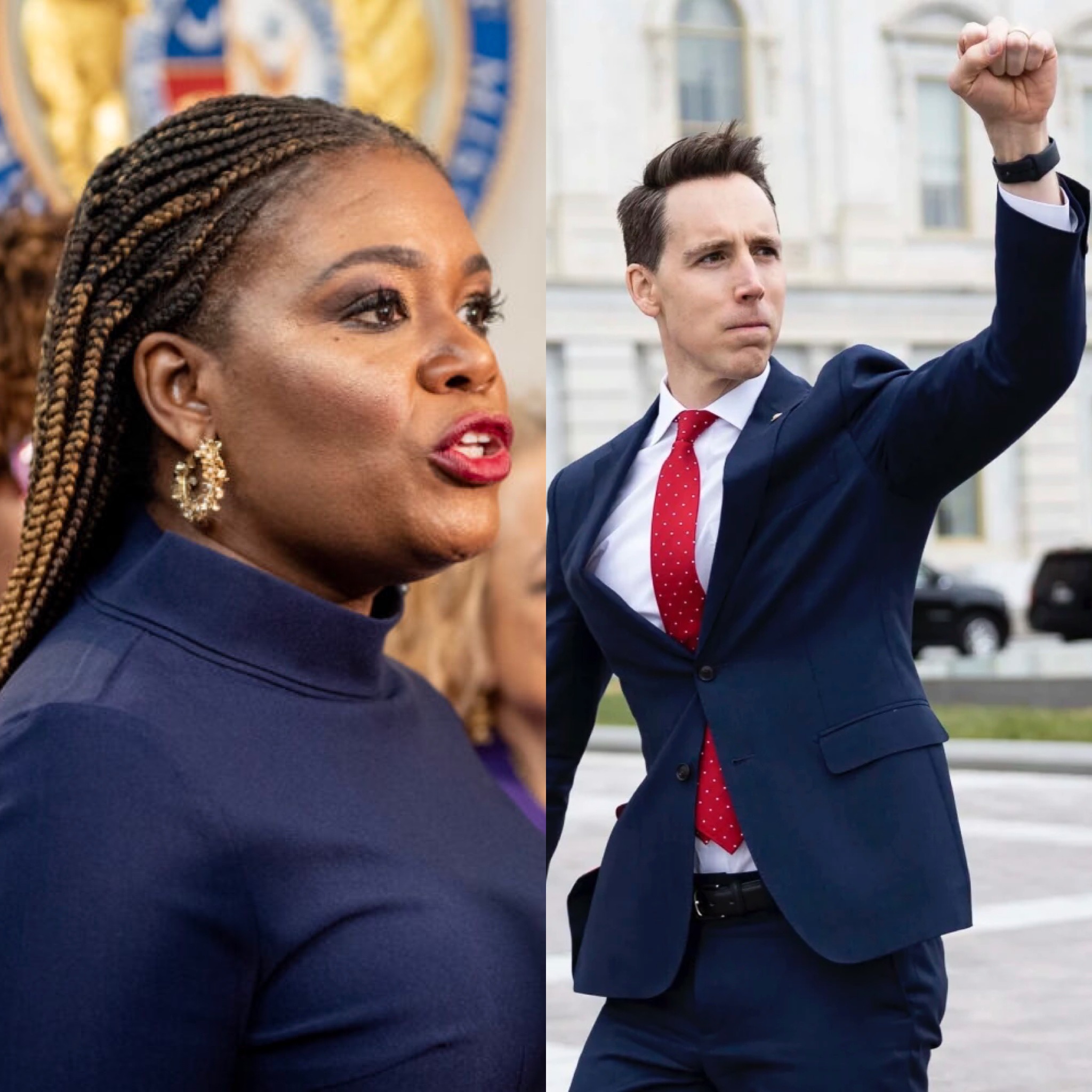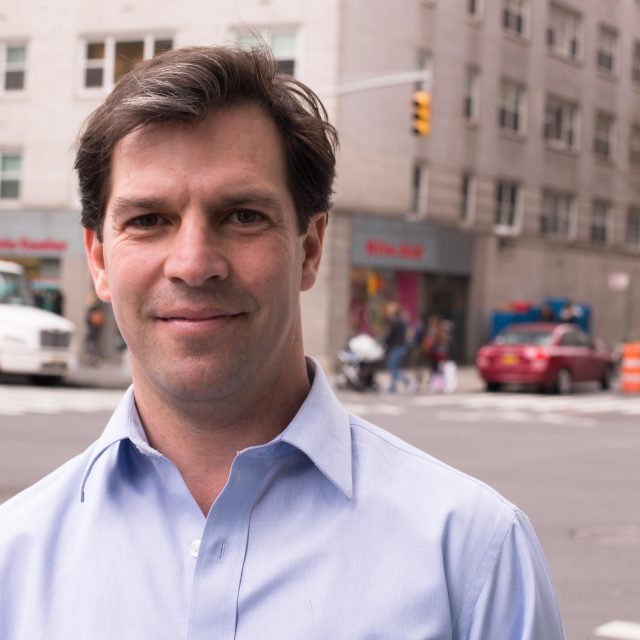Cori Bush and Josh Hawley: Two roads diverged in a state

I’ve always thought that true political talent is rooted in dexterity: the ability to appeal to a wide variety of constituencies without significant internal contradictions.
Every politician starts with his or her base. Sometimes that base is ideological. Other times it is, racial, geographic or generational.
Candidates with dexterity are not only able to expand their base, but in some cases can neutralize or even convert key individuals and groups who once constituted significant obstacles to their career advancement.
Possessing dexterity doesn’t mean you lack convictions. It also doesn’t mean that you have them.
In my view, it means that you have the ability to frame those convictions differently in different settings; to emphasize certain issues in certain venues; to adopt a demeanor suitable for the group, yet without seeming like a chameleon.
To blend, effortlessly.
Possessing unshakable convictions is often estimable — even more so when those convictions inform policy platforms that create positive real-world impact.
But this column has no pretense of expertise in morality, or in policy evaluation. It only offers political analysis.
—-
Two of the nation’s most polarizing politicians call Missouri home.
U.S. Sen. Josh Hawley was elected in 2018, defeating former Sen. Claire McCaskill in the state’s most expensive race of all time — including outside spending, it was a $100 million-plus race.
Hawley would go on to gain national notoriety when he became the first senator to announce his intention to formally object to the certification of 2020’s electoral college votes, which triggered a debate on the issue in each congressional chamber on Jan. 6, 2021.
The desecration and destruction of our Capitol that day would go down as one of the most disgraceful episodes in American history. And for the first two-year election cycle following that day, Hawley leaned into his role that day, glamorizing his fist-pumping exhortation to those who would sack the building hours later and plastering it on coffee mugs to raise campaign cash.
And when the media outlet that had snapped the picture demanded he stop using the copyrighted image he’d purloined, he refused, just as defiantly as he had stood against Senate Republican leadership in the wee hours of Jan. 7 when he voted to object even as people cleaned blood off the floors of the Capitol.
Sometime in late 2022, Hawley saw what many billionaire businessmen and top-tier elected officials missed: that Donald Trump’s quest to reclaim the Republican presidential nomination was unstoppable. Accordingly, he quickly announced that he would not seek the White House in 2024, but would instead run for re-election.
And he began demonstrating impressive political dexterity.
Whereas a presidential primary would have required that Hawley appeal to the median primary voter (who firmly believes, despite Trump’s loss in 60 post-election court cases in which he sought to prove election fraud, that the election was stolen), Hawley had no reason to be concerned about a U.S. Senate primary in Missouri.
Back home, his only concern was a potential general election fight against young, chiseled ex-Marine Lucas Kunce, who had developed a hard-edged populist message and national small-dollar fundraising base in his 2022 bid.
Hawley, no dummy, quickly pivoted his focus from election denialism to a blend of economic and cultural populism calibrated to court Missouri swing voters.
He sponsored and passed through the Senate legislation providing billions of dollars in compensation for cancer victims whose disease could be traced to nuclear waste exposure associated with federal government-funded activities, a pervasive problem in North St. Louis County.
He embarked on a multi-year effort to gain support from the Teamsters Union by co-authoring a letter with Democratic Sen. Chris Murphy of Connecticut scolding Amazon for mistreating its drivers, and was the sole Republican to vote for legislation requiring that Amazon drivers be treated as employees as opposed to contractors, earning public praise from the Teamsters.
Soon thereafter, he walked a Teamsters picket line in St. Louis, personally engaging rank-and-file members and garnering more union praise, and proposed to slap a 100% tariff on Mexican-manufactured electric vehicles, which the Teamsters again cheered.
Knowing that he would likely face a general election opponent with potentially broad appeal to working- and middle-class swing voters, Hawley’s well-timed moves sought to convert a group that had long opposed him, and reduce the likelihood that an expansive coalition against him could coalesce.
—-
The other Missouri politician who became a polarizing figure nationally was Cori Bush. Having comfortably won a 2022 re-election bid, she took a different tack than Hawley in dealing with her political vulnerabilities.
Instead of backing away from her most polarizing positions, she leaned into them.
Years after calls to “defund the police” had become unpopular and some cities who shifted funding away from law enforcement reversed course, Bush stuck with her position, despite continuing public safety challenges in her district and despite a federal investigation into hundreds of thousands she spent on private security for herself provided by her husband.
The Jewish community both locally and nationally had long viewed Bush with skepticism due to her vocal support for a Palestinian state, her comments blaming Israel for Middle East strife and her association with a known anti-Semitic activist.
But instead of personally engaging Jewish community leaders, Bush mostly avoided them.
Meeting with a Jewish group just once after four years in office despite repeated requests from numerous organizations was not the recipe to neutralize opposition – especially after Bush glibly noted that her trick to dealing with groups with whom she disagrees was simply to ignore their calls.
She faced renewed opposition from the Jewish community over the past year due to comments she made in the wake of the Oct. 7 massacre in Israel by Hamas combatants seeming to blame Israel in equal part for the carnage.
Those comments turbo-charged the national effort to recruit a primary opponent for her, culminating in St. Louis County Prosecuting Attorney Wesley Bell’s emergence.
But instead of walking back her controversial comments once Bell announced his candidacy, Bush again leaned in, first voting on the losing side of a 422-2 vote to deny immigration benefits to declared Hamas members, and then — even after an onslaught of national money flooded the district attacking her — declining to call Hamas a terrorist group.
“We were called terrorists during Ferguson,” she said of herself and other 2014 protesters. “Has (Hamas) hurt people? Absolutely. Has the Israeli military hurt people? Absolutely.”
One polarizing Missouri politician displayed dexterity by sitting down with some of his longtime opponents, finding common ground, neutralizing their opposition and even found some unexpected support.
While – like almost everything Hawley does – his pivot felt wholly inauthentic, it was effective. His Senate race is no longer considered one of the top 10 most hotly contested races in the country.
The other politician was wholly authentic, and in a world not defined so coldly and mathematically on biennial election nights, might be universally admired for the strength of her convictions. Instead of the Hawley pirouette to safer terrain, she leaned into some of her most divisive stances, hugging her base instead of courting those who might have been open to her.
That’s a big reason why she lost on Tuesday.

Jeff Smith is executive director of the Missouri Workforce Housing Association, which supports development of safe, affordable housing. Previously, he taught public policy at Dartmouth College and The New School, represented the city of St. Louis in the Senate, and wrote three books: Trading Places, on U.S. party alignment; Mr. Smith Goes to Prison, a memoir and argument for reform; and Ferguson in Black and White, an historical analysis of St. Louis inequality. He holds a Ph.D. in political science from Washington University.
Miss Clipping Out Stories to Save for Later?
Click the Purchase Story button below to order a print of this story. We will print it for you on matte photo paper to keep forever.

